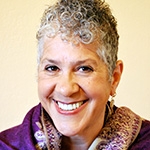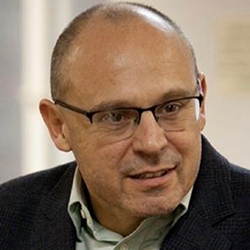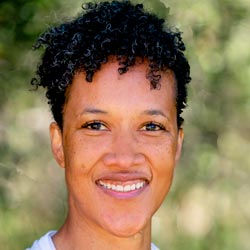
Search Results: justice
-
Some people in the NVC community consider the words "privilege" and "power" triggering and/or evaluative. From this perspective, how can the concepts of "privilege" and "power" be considered part of the NVC teaching? This writing piece examines the power and privilege debate. It also discusses what the author sees as Marshall Rosenberg and Gandhi's stance on the subject...
-
Working on social justice and racial equity? If you include attending to white culture and privilege as part of that work, you'll reap important benefits. Understanding white culture — along with its embedded historical privileges — provides valuable insight into a larger system of inequity.
-
Do you sometimes feel overwhelmed – or locked into passivity? This course offers you a way out. Learn to change the way you perceive leadership, and you’ll help yourself respond more powerfully and proactively every day of your life – wherever you are – and whomever you’re with!
-
Our world trains us to think in terms of providing for everyone’s needs because they deserve it, earned it, or they possess the resources -- it's fair, socially just, supports equality or because people have rights. Instead, can we step outside this worldview to look at providing for everyone’s needs because those needs exist -- can we hold this basic reverence for life? Are we able to have a needs-based dialogue when such a reframe could alienate those who live in the worldview of earn/deserve?
-
"All humans share the same needs" -- tragically, this idea can hide the reality that some people with less power in society have needs that go unmet to a greater extent, much longer, and with more dire consequences. Often, when the marginalized bring up experiences related to their membership in a certain group, their pain isn't acknowledged, and focus shifts to the listener's discomfort. The concept of universal human needs can be used to silence and minimize their pain. Read on for how to proceed.
-
Amidst racial violence, there are things that NVC can offer. And there are places where NVC culture needs to be more vigilant. Here are examples of where, amidst incredible loss and pain, "allies" and communities commonly (and often unknowingly) create false equivalences, minimization and re-injure those who've been historically marginalized -- even when they offer empathy, or aim to stay "safe". Read on to cultivate greater understanding and ways to respond differently.
-
Human health is connected to health of ecosystems and other societies. Our wellness and liberation is found in our interconnection, kinship, reverence for life, and solidarity. Solidarity erodes through narratives, practices and policies that separate us from each other -- and this impacts societal functioning. The breakdown creates conditions for pandemic, racism, police brutality, exploitation in untold numbers, and extinction. Read on for how all is connected.
-
Even in the pandemic the line between what’s essential for people and what is “essential” for fueling the economy, often gets confused. Capitalist market economies actively undermine attending to needs for the many and for life as a whole. Economic recovery is a mirage leading to continued collective oppression. This article explores possible ways to bring us closer to attending to our actual needs — and caring for self, others and life.
-
How can we hold love, understanding and compassion -- and still confront people about the harmful impact of their actions, hold them accountable, take action, speak truth and advocate for change... all in a manner fully aligned with our values and vision? Read on for how we can do accountability; what kind of action we take and with what motivation; and what our movements for change can look like from this lens.
-
Anger can result in violence or in a movement towards positive change. We can see this happen in the push for racial justice. When you perceive anger as a form of violence your nervous system becomes activated. Your perspective narrows and old conditioning can take over leading to overwhelm, defensiveness, hatred, or violence. Read on for four ways to to respond to our own or others' anger in a way that mobilizes desired change.
-
Giving feedback across a differences in culture, race, and power isn't something that we have to do -- but we can choose to do it for our own liberation, if we want. And if we choose that path, impact delivered well can invite caring for all needs and increase capacity to learn. This is the exacting, rigorous work of speaking about impact without attributing anything to the person whose actions resulted in the impact. Read on for part 1 of 2.
-
When people get hurt or harmed, how can we restore trust, safety and connection in the community? A restorative approach which focuses on who got hurt and how can we restore it? Rather than whose fault is it and how can we punish them?
-
Duke Duchscherer shares what the role of the facilitator is in a restorative circle.
-
- Strengthen embodied awareness
- Integrate inner and outer worlds to create a connecting "corridor"
- Identify projected images that prevent connecting
- Embrace fear and transform reactivity
- Create a support network where you can express and be heard
-
Often, people don't help others when others are in danger, whether it is a parent who is abusing a child, a man who is battering his wife, someone sexually harassing another, a bully making fun of someone, or a person who is abusing a pet. However, intervening can save lives. And bring enrichment, peace, safety, care, and justice to the world.
-
Please join us as we remember the work and life of Inbal Kashtan. She offered this parenting Q&A session in NVC Academy's 2013 Parenting Conference.
-
Join LoraKim Joyner to investigate how merging science, the social and emotional intelligence of humans, animals and other species and Nonviolent Communication can bring a greater sense of belonging and wholeness to your life, and care and justice to the lives of others.
-
Hi friends, My name is Itzel and I’m happy for this opportunity to share a bit about myself and how I came to teach NVC. I was an activist before I knew what the word meant. When I was a child, I often argued with the adults around me about what I thought was “right.” If I had a nickel for every time a grown-up said to me, “You should be a lawyer,” I probably would’ve collected enough money to pay for the law school education that I eventually got. I left my traditional legal career path after more than a decade to become a...
-
There are many polarizing issues we can resist and fight over. The word "resistance" can mean fighting against what we don’t agree with in counterproductive ways. It can also be the illusion and futility of mentally fighting against reality of 'what is'. But acceptance, non-resistance, of what is doesn’t mean powerless resignation. Another way to resist is to accept and love whole-heartedly, with empathy and care for the people doing the things we are resisting.
-
The regeneration movement employs practices for healing our planet from damage, and boosting Earth sustainability. Environmental and social degradation is deeply connected -- as it comes from the same extractive, exploitive mindset of economic and related systems. Connecting with universal consciousness and needs underlying conflicts, we connect with commonality of all planetary life. This helps tap new abilities for working together. This can contain power to regenerate and heal ourselves and Earth.


















